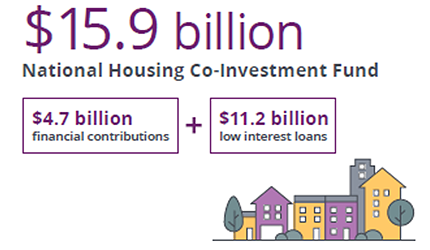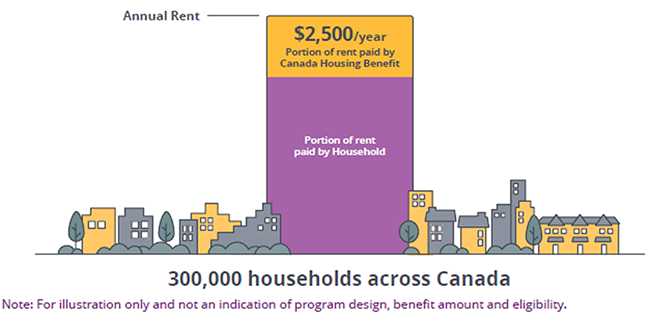Canadians get affordable housing help — Hamilton
Author: Toronto Real Estate Admin / Category: News Bulletin
Plan calls for significant investments in affordable units and repairs to existing units
HAMILTON, ONTARIO, November 23, 2017 — All Canadians need and deserve housing that is safe and affordable. A home makes Canadians feel more secure, making it easier to raise healthy children, pursue an education, and gain employment.
Adam Vaughan, Parliamentary Secretary to the Minister of Families, Children and Social Development (Housing and Urban Affairs), on behalf of the Honourable Jean-Yves Duclos, Minister of Families, Children and Social Development, today shared details of 10-year, $40 billion National Housing Strategy that will help reduce homelessness and improve the availability and quality of housing for Canadians in need.
Across Canada, 1.7 million Canadians are in core housing need. To help address this, the Strategy has set bold goals including:
- reducing chronic homelessness by 50 per cent;
- removing more than 530,000 households from housing need;
- creating four times as many new housing units as built under federal programs from 2005 to 2015;
- repairing three times as many existing housing units as repaired under federal programs from 2005 to 2015; and
- protecting an additional 385,000 households from losing an affordable place to live.
The National Housing Strategy is meeting the needs of Canadians, including seniors, Indigenous Peoples, survivors of family violence, people with disabilities, refugees, veterans, and those grappling with homelessness. It will promote diverse communities and encourage the construction of homes that are sustainable, accessible, mixed-income, mixed-use, and located near transit, work, and public services. In response to calls from housing advocates, service providers and feminist leaders, the Strategy commits to ensuring that at least 25% of funds go to projects for women, girls and their families.
This Strategy – built by and for Canadians – sets a long-term vision for housing in Canada with unprecedented investments and new programs that will deliver real results for Canadians working hard to improve their quality of life.
This Strategy will focus on the needs of the most vulnerable through a human-rights-based approach to housing. Within the next year, legislation will be introduced obligating the federal government to maintain a National Housing Strategy and report to Parliament on housing targets and outcomes.
The federal government will work with provinces and territories to develop a $4 billion Canada Housing Benefit to be launched in 2020 to respond to local housing needs and priorities. This will be a significant new tool to address challenges of housing affordability in communities across the country. It will provide an estimated average of $2,500 per year to each household recipient, assisting at least 300,000 families when fully implemented. The benefit be delivered directly to households as a portable benefit they can use to help with the costs of housing.
Quotes:
“Our Government is establishing a federal leadership role in housing. The National Housing Strategy will create a new generation of housing in Canada. It will promote diverse communities and will build housing that is sustainable, accessible, mixed-income and mixed-use that will be located near transit, work and public services.”
—
Honourable Jean-Yves Duclos, Minister of Families, Children and Social Development and Minister Responsible for Canada Mortgage and Housing Corporation
“Our Government is deeply committed to ensuring that Canada’s existing social housing stock remains affordable and in good repair well into the future. The National Housing Strategy is a key element of our Government’s plan to make new investments in social infrastructure – things like affordable housing and early learning and child care – to help strengthen the middle class, promote growth and give all Canadians the opportunity to succeed.”
— Adam Vaughan, Parliamentary Secretary to the Minister of Families, Children and Social Development (Housing and Urban Affairs)
Quick facts:
- The National Housing Strategy – Canada’s first ever – was developed through consultations with Canadians from all walks of life: people who have experienced barriers to good housing, experts, stakeholders, think tanks, as well as provinces and territories and municipalities.
- Over the next 10 years, the Strategy – which will be in part funded jointly by the federal, provincial, and territorial governments – will help reduce homelessness and the number of families living in housing need, and will help strengthen the middle class.
- Investment under the National Housing Strategy includes:
- $15.9-billion for a new National Housing Co-Investment Fund
- $8.6-billion for a new Canada Community Housing Initiative in partnership with provinces and territories, and $500 million through a new Federal Community Housing Initiative
- $4-billion for a new Canada Housing Benefit to be launched in 2020 in partnership with provinces and territories
- $2.2-billion to reduce homelessness
- $300-million in additional federal funding to address housing needs in Canada’s North.
- $241-million for research, data and demonstrations.
- In recognition of the significant amount of new housing units to be built and repaired through the federal Co-Investment Fund, the Strategy also includes ambitious targets to reduce greenhouse gas emissions, and ensure accessibility in building design.
- The Government of Canada is also working with Indigenous leaders to co-develop distinctions-based housing strategies with First Nations, Inuit, and Métis Nation that will be founded on the principles of self-determination, reconciliation, respect, and cooperation.
Associated links:
Media contacts:
Émilie Gauduchon
Press Secretary
Office of Minister Duclos
613-404-2941
Emilie.Gauduchon@hrsdc-rhdcc.gc.ca
Audrey-Anne Coulombe
Media Relations
Canada Mortgage and Housing Corporation
613-748-2573
acoulomb@cmhc-schl.gc.ca
Backgrounder
Canada’s National Housing Strategy
The National Housing Strategy is a part of a long-term vision to strengthen the middle class, promote sustainable growth for Canadians, and lift more Canadians out of poverty.
The Strategy – funded through new and existing programs – follows a human rights-based approach, and includes a National Housing Co-Investment Fund, community housing initiatives, and the Canada Housing Benefit.
A human rights-based approach to housing
Canadians deserve safe and affordable housing.
The National Housing Strategy will help address a range of housing needs, from shelters and community housing, to affordable rental and homeownership. It will promote:
- Accountability
- New legislation that promotes a human rights-based approach to housing and prioritizes the housing needs of Canada’s most vulnerable
- A federal housing advocate to advise and identify actions to address systemic barriers faced by vulnerable groups
- Participation and inclusion
- A National Housing Council with a diverse membership that will provide advice to CMHC and the responsible Minister
- A Community-Based Tenant Initiative that will support grassroots organizations by providing information and resources to tenants facing barriers in accessing community and affordable housing
- A public engagement campaign to highlight the benefits of inclusive communities and housing to begin in 2020
National Housing Co-Investment Fund
The National Housing Co-Investment Fund will provide $15.9 billion – including $4.7 billion in contributions and $11.2 billion in low interest loans – to repair existing rental housing and develop new affordable housing. The Fund is expected to create up to 60,000 new homes and repair up to 240,000 existing community homes.

The Fund will involve partnerships with – and investments from – the provinces and territories, municipalities, non-profits, co-operatives, and the private-sector. It will provide:
- More shelter spaces for survivors of violence
- Transitional and supportive housing for those in need
- New and repaired affordable and community housing
- Help to make homeownership more affordable for modest income earners
The Fund will also support Canada’s climate change goals, promote technologies that decrease the impact of housing on the environment, and improve the accessibility of housing for people with disabilities.
To encourage the development of sustainable, accessible, mixed-income, and mixed-use developments and to maximize the impact of this Fund, the Government of Canada will transfer up to $200 million in federal lands to housing providers. Funding will also be provided for environmental remediation, renovations, or retrofits to ensure surplus federal buildings are suitable for use as housing.
Canada Housing Benefit
The federal government will invite provinces and territories to partner on a jointly funded $4-billion Canada Housing Benefit.
To be launched in 2020, the Canada Housing Benefit will provide affordability support directly to families and individuals in housing need, including those currently living in social housing, those on a social housing wait-list and those housed in the private market but struggling to make ends meet.
The Government estimates that the Canada Housing Benefit will deliver an average of $2,500 per year to each recipient household. Over time, the Canada Housing Benefit will grow to support at least 300,000 households across the country.

Article source: http://www.cmhc-schl.gc.ca/en/corp/nero/nere/2017/2017-11-23-0900.cfm